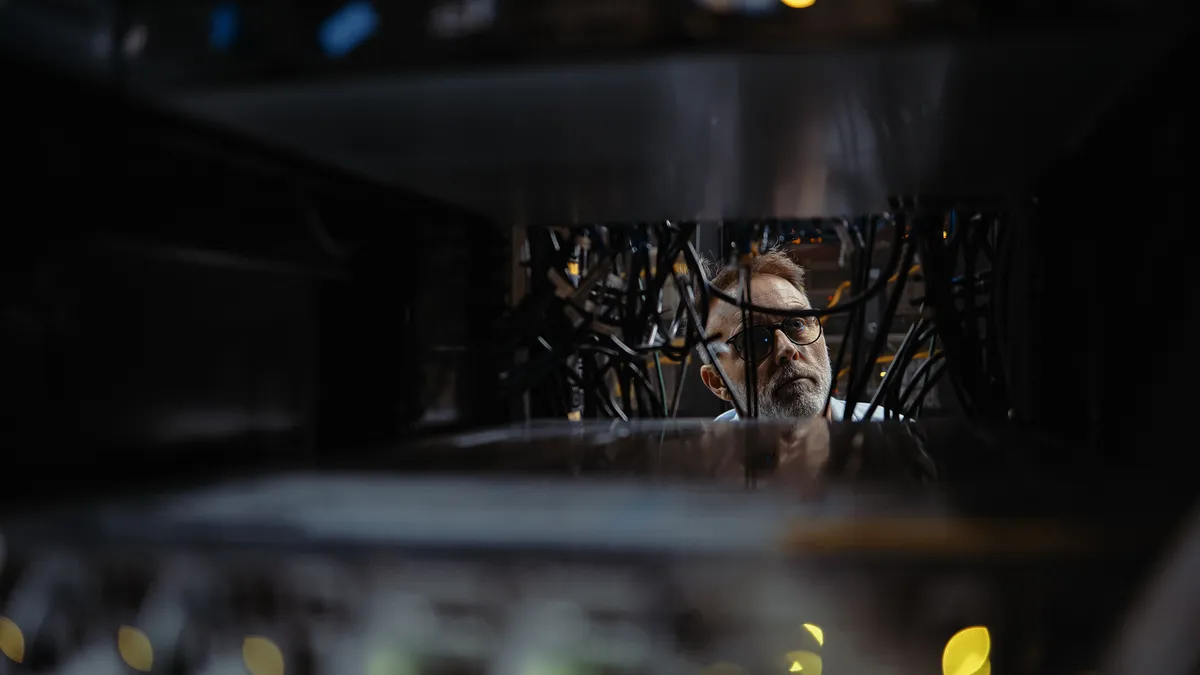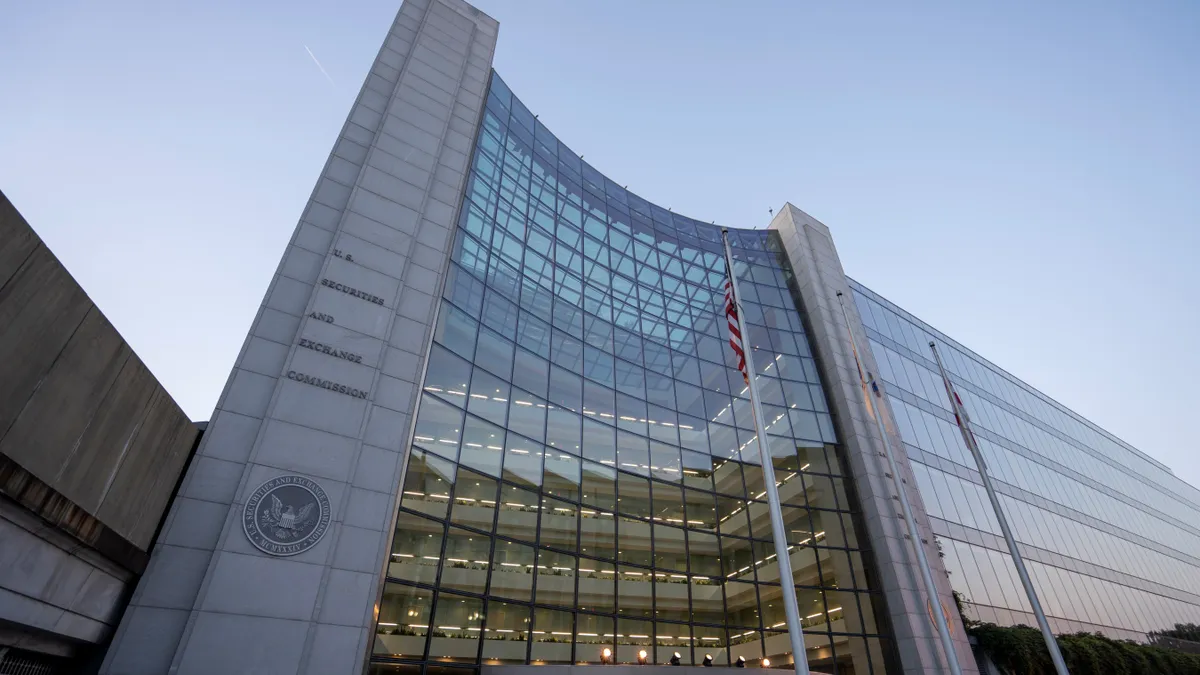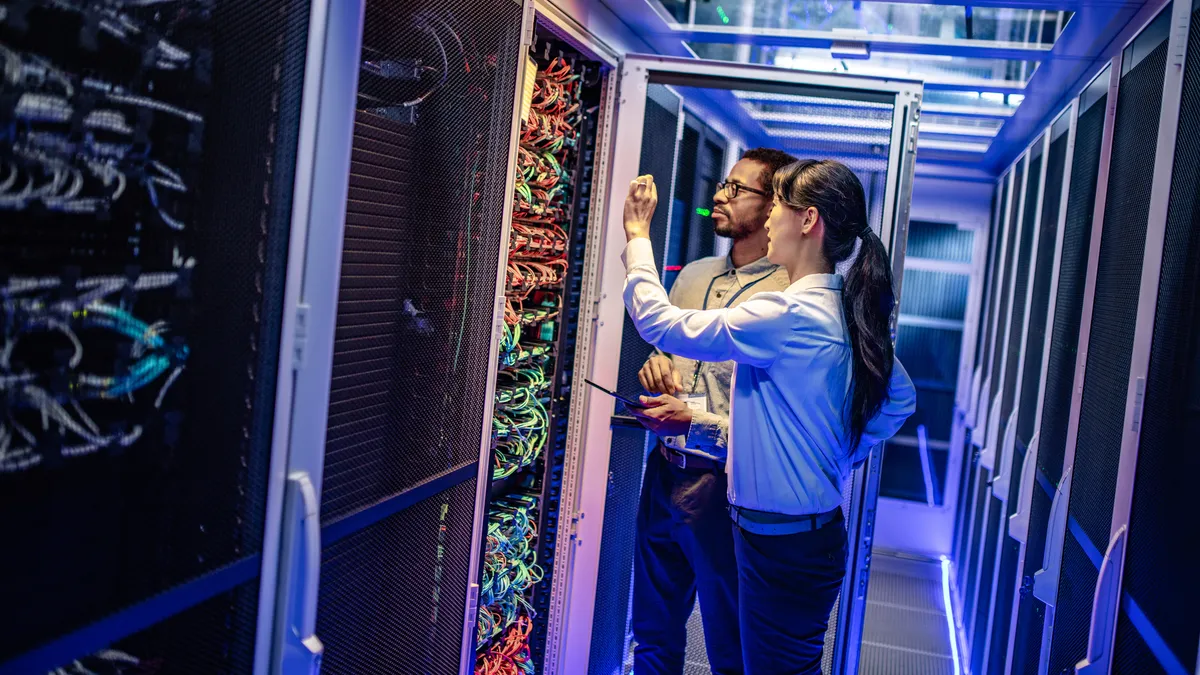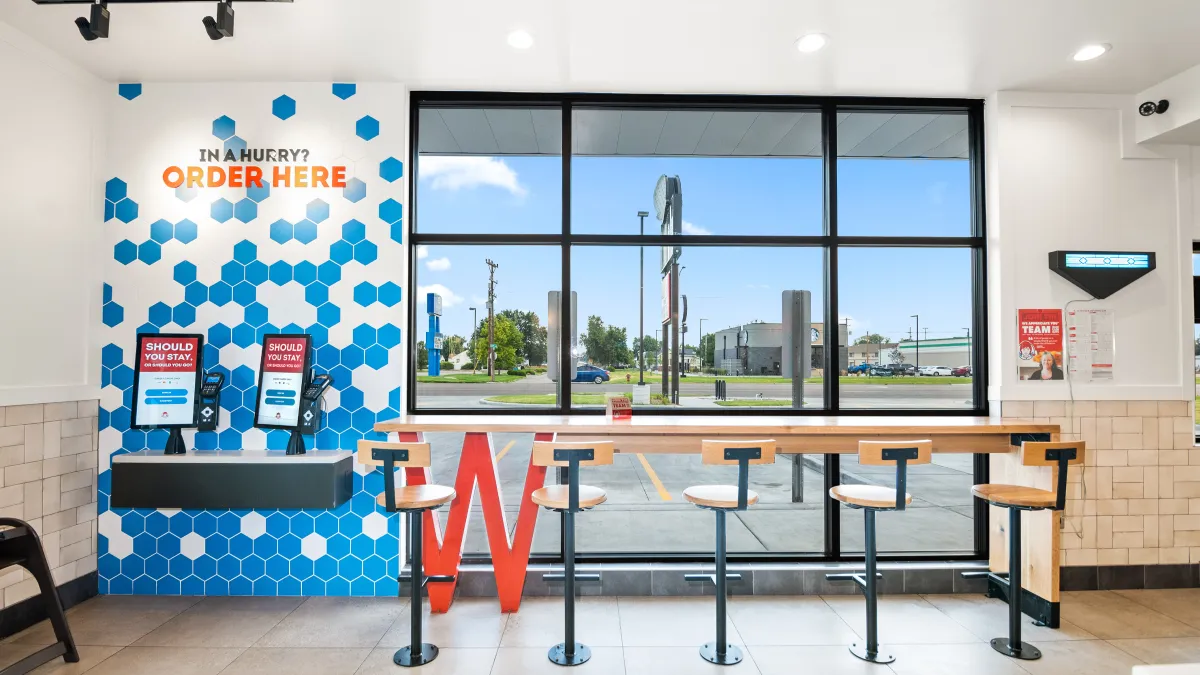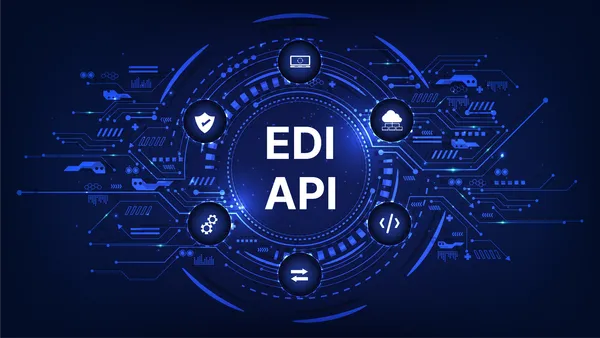It's difficult to know what technologies are worth pursuing, but companies too cautious about adopting a new innovation could lose out to competition.
Certain technologies are outperforming the rest in terms of digital transformation. A technology usually hits a plateau after a successful market penetration, with a lifecycle punctuated by highs and lows along the way.
For a technology to have a chance at successful adoption, companies have to culturally evolve and adapt their available skills. Disruptive technologies influence every aspect of business practices and can be daunting to adopt. But the rewards are often worth the risk when implemented strategically.
In a report released Tuesday, KPMG outlined the top 10 technologies for driving business transformation and value. Three technologies — IoT, RPA and blockchain — stand out because of major leaps in ranking and continued dominance.
KPMG's top 10 technologies driving business transformation
| Technology | 2019 rank | 2018 rank |
|---|---|---|
| Internet of things | 1 | 1 |
| Robotic process automation (RPA) | 2 | 9 |
| Artificial intelligence, cognitive computing, machine learning | 3 | 2 |
| Blockchain | 4 (tie) | 7 |
| Robotics and automation (including AV) | 4 (tie) | 3 |
| Augmented reality | 6 | 8 |
| Virtual reality | 7 | 4 |
| Social networking, collaboration technologies | 8 | 5 |
| Biotech, digital health, genetics | 9 | 6 |
| On-demand marketplace platforms | 10 | 10 |
SOURCE: KPMG
Internet of Things
IoT ranked No. 1 this year and in 2018. Gartner estimates there are about 14.2 billion connected devices in 2019 and predicts a rise to 25 billion by 2021. Each device contributes massive amounts of data in need of analysis.
To make sense of the IoT-generated data, companies are applying artificial intelligence to video, images, speech, network traffic and sensor data, according to Gartner. The process will eventually lead to data broking, which comes with risk.
Before a company can delve too deeply into buying and selling data, CIOs have to overcome the challenges of IoT, beginning with finding a skilled workforce. More than one-third of IoT professionals struggle with finding talent with big data expertise.
IoT also requires professionals knowledgeable in embedded software development and embedded electronics because it unifies the operation and information technology.
The role IoT is playing in connectivity and data collection highlights the extra pressure on security. Faulty security can lead to an interruption in service or a breach of data, but IoT governance "does not allow an exact formula," according to KPMG. It therefore requires CIOs to involve multiple business units, including engineering, IoT and operations.
Robotic process automation
RPA made significant headway in 2019. It ranked as KPMG's second top technology for driving business transformation, a jump from the No. 9 position last year.
RPA solutions are jumping in to increase processing speeds and eliminate repetitive work. Nearly one-third of enterprises are investing up to $50 million in intelligent automation solutions, which is a catch-all for AI, ML, cognitive computing and RPA.
Still, companies are experiencing a splintered effect from these technologies because they lack an integrated solution approach. Companies misusing new technology can lose more than $6 billion a year, according to a Redwood Software and Sapio Research survey.
Scaling for RPA needs attention and improvement, so companies like Pinterest are starting small with implementations. The virtual pinning site is primarily focused on how it stores and analyzes the right user data.
Cultural acceptance also threatens RPA's potential. Half of organizations experience RPA resistance, with employees fearing the technology will replace their jobs.
Blockchain
Blockchain is a tricky technology for many industries. The technology jumped from seventh place last year to fourth place on KPMG's 2019 list. Just a year ago, only 1% of CIOs reported adoption of blockchain and 8% were experimenting with it, according to Gartner.
The rest of the CIOs had no intention or interest in deploying the ledger technology.
Critics say the "winning" blockchain platform hasn't made its debut on the market yet. But it hasn't stopped major tech vendors from advancing their blockchain solutions, with IBM leading the pack.
Forrester predicted that the word "blockchain" would eventually dissolve in favor of a more neutral sounding "distributed ledger technology." Blockchain, researchers argued, set parameters whereas DLT would alleviate the expectations around the root of the technology.
Regardless of the perceived state of the technology, companies like Starbucks are aggressively pursuing blockchain. Last year, the coffee chain announced its "bean to cup" tracking initiative. A year later, the company said it is using Microsoft Azure Blockchain Service to fulfill its transparency promise.





